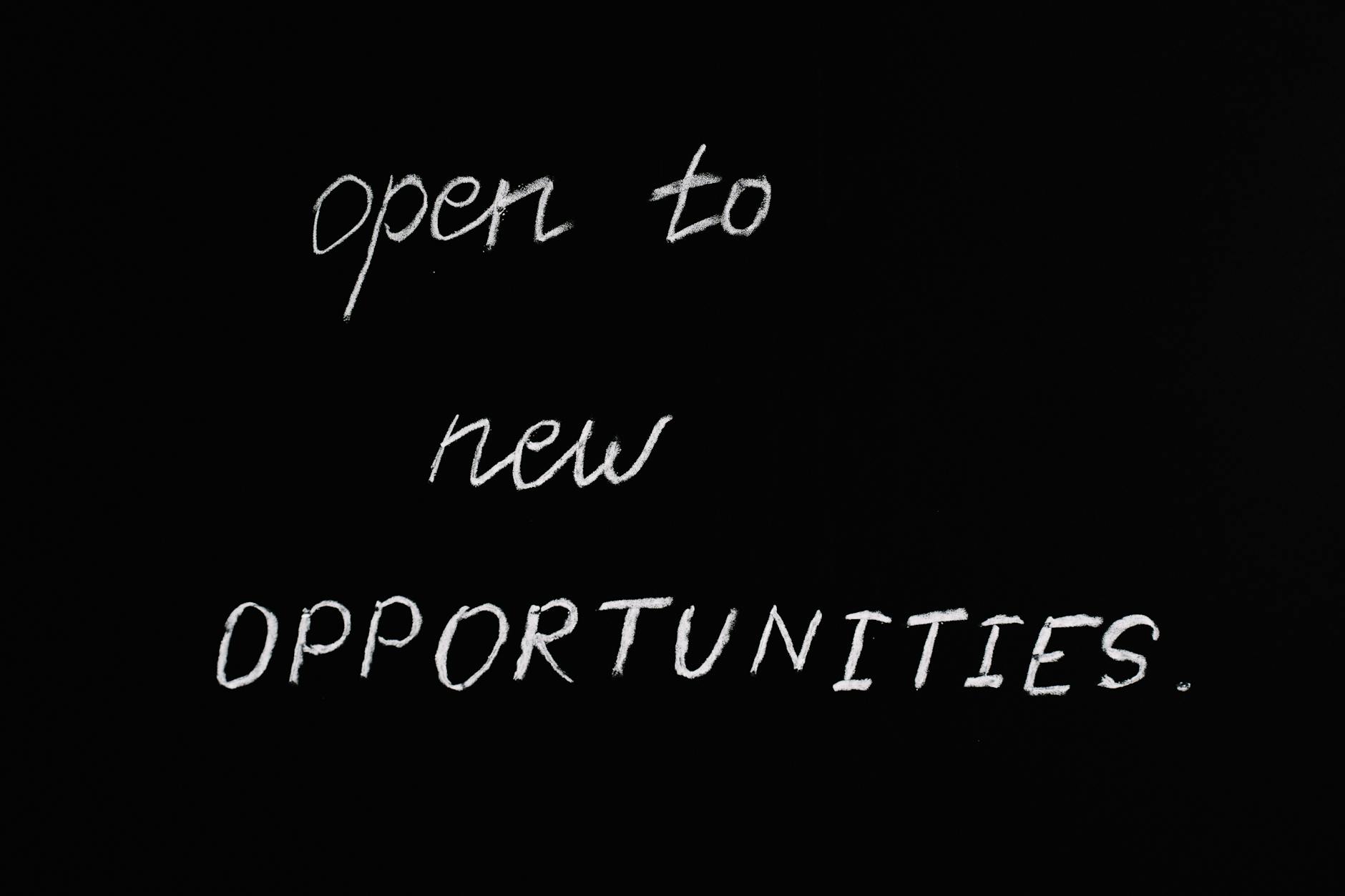Most people don’t realize just how much their mindset shapes every step they take in their careers. The way you think about learning, bounce back from setbacks, and believe in your own ability can be the difference between loving your job and feeling stuck. Quiet beliefs about whether you can grow or if you’re “just not cut out” for something often steer tough decisions, risk-taking, and even day-to-day happiness at work.
If you believe you can pick up new skills or push through challenges, you’ll likely find more doors open and greater satisfaction in your career. But when negative thoughts win out, it’s easy to lose motivation or settle for less. Changing how you see your own potential may be the most important career move you ever make.
Growth Mindset: The Foundation for Career Moves
Believing your skills can grow doesn’t just change how you handle tough days—this belief is often the first step toward big career moves. A growth mindset means you see every challenge as an opportunity, not just a setback. If you think your abilities can improve, switching roles or even switching industries suddenly feels possible. Recent studies have shown that people with a growth mindset report higher job satisfaction and tend to reach their goals faster. Let’s dig into how this approach changes your outlook at work and makes bold moves more likely.
 Photo by Anna Tarazevich
Photo by Anna Tarazevich
How Growth Mindset Fuels Bold Career Choices
People who believe their skills can improve treat setbacks as stepping stones, not stop signs. Consider the marketing specialist who moved into product design, or the teacher who became a tech trainer. They didn’t disregard the bumps in the road. Instead, they saw each challenge as proof that they were stretching, learning, and moving closer to their next big role.
For example:
- Career changers often credit a growth mindset for their bold moves. Many describe how believing they could learn new skills gave them the confidence to step outside their comfort zone, even when they weren’t instant experts.
- Professionals in fast-changing fields use mistakes to their advantage. They review what didn’t work, figure out why, and use those lessons as a guide for their next steps.
Seeing failures as data, not disasters, is one powerful way that mindset shapes careers. This perspective is backed by stories gathered in lists of growth mindset examples from real careers and experts’ breakdowns in career breakthrough advice. The pattern is clear: People who ask, “What can I learn from this?” instead of “Why isn’t this working?” are more likely to find meaningful work and new opportunities.
Growth Mindset vs. Fixed Mindset at Work
The way you view your own skills has a direct effect on how you solve problems and handle feedback. A fixed mindset says, “I’m either good at this, or I’m not,” which can freeze you in place. If you’re stuck here, every mistake feels like proof you shouldn’t try again.
By contrast, adopting a growth mindset changes daily work in a few important ways:
- Problem-solving: Growth-oriented people keep looking for solutions, even when things get muddy. Fixed mindset folks often stop short when an answer isn’t obvious.
- Feedback: With a growth mindset, feedback is seen as useful, while someone with a fixed mindset might feel threatened or shut down when they hear suggestions.
- Adjusting to changing goals or setbacks: When plans change or projects fail, growth mindset thinkers bounce back faster. They’re willing to adapt, while those fixed in their beliefs may get stuck or feel defeated.
Research summarized in Growth Mindset vs. Fixed Mindset at Work highlights how “I don’t know this yet” leads to better creativity and problem-solving. There’s a good breakdown of the two mindsets—one that prioritizes learning and another that avoids risk—at Harvard Business School Online.
Tips to Build a Growth Mindset in Your Career
Making the switch to a growth mindset isn’t magic—it’s a set of habits you can develop over time. The process starts with small choices and grows into long-lasting change. Try these practical steps:
- Read about skill development. Books like “Mindset” by Carol Dweck, or articles on how others made career changes, can help you see that change is possible.
- Get curious about your mistakes. Instead of hiding errors, ask what they’re teaching you. Write down what happened and one thing you’ll do differently next time.
- Ask for feedback regularly. Don’t wait for annual reviews. A simple “How could I get better at this?” after a project opens you up to growth.
- Break big changes into small steps. Want to switch fields or learn a new skill? Make a weekly plan that includes research, practice, and a meeting or two with people who’ve done what you want to do.
- Surround yourself with growth mindset people. Look for peers, mentors, or online groups that focus on learning and growth to keep you inspired.
Many of these habits are shared by working professionals in growth mindset career examples. If you make these small changes part of your daily routine, you’ll start seeing challenges as chances to learn—one of the fastest ways to find satisfaction and success in your career.
The Impact of Mindset on Job Satisfaction
The way you see challenges and your potential for growth plays a big role in how you feel about your job. Mindset influences if you bounce back fast, handle stress well, and even find purpose in what you do. Let’s break down how a growth-focused attitude transforms stress, belief in your abilities, and meaning at work into real job satisfaction.
Mindset, Stress, and Feeling Good at Work
A positive, flexible mindset isn’t just a mood booster—it’s a proven buffer against stress and burnout. When tough days hit, people with a growth mindset see challenges as problems to solve, not threats. This response lowers daily frustration and helps you recover quickly.
- Growth mindset lowers frustration: Seeing setbacks as learning chances, not disasters, means stress feels temporary, not overwhelming.
- Protects against burnout: Belief in personal growth arms you with hope and energy to keep moving. When you think you can improve, you tend not to freeze up or fall into negative thought cycles.
Research agrees: A recent study found that strengthening both a growth mindset and self-efficacy protects against job-related stress, boosting overall life and work satisfaction (Growth mindset and life and job satisfaction: the mediatory role of stress and self-efficacy). Other data suggests that a stress-is-enhancing mindset reduces conflict’s impact on job satisfaction, even when work and home demands clash.
It’s a kind of shield—when you believe you can keep learning, stress doesn’t stick around as long.
Self-Efficacy—Believing You Can Succeed
Self-efficacy is the simple belief: “I can handle this.” People with high self-efficacy set challenging goals, persist longer, and feel more satisfaction when they achieve them. Self-efficacy pairs with a growth mindset to help fuel career wins and happiness at work.
- Raises job satisfaction: You’ll notice higher satisfaction if you believe your actions make a difference.
- Supports achieving goals: High self-efficacy helps you try hard things and stick to them, making finishing projects or mastering skills more likely.
You can build self-efficacy day by day:
- Celebrate small wins. Every skill learned or hurdle cleared reinforces that you can make progress.
- Learn from mentors and peers. Watch how others succeed and let that show you what’s possible.
- Remind yourself of past successes. When discouraged, remember all the skills you’ve already picked up.
- Practice new skills in safe spaces. Simulations, side projects, or role-playing can build confidence for bigger tasks.
Studies show that higher self-efficacy leads to stronger career growth, and is a major factor in long-term job satisfaction and motivation (Achieving Career Self-Efficacy).
 Photo by ANTONI SHKRABA production
Photo by ANTONI SHKRABA production
Aligning Mindset, Values, and Meaning at Work
Job satisfaction isn’t just about paychecks or perks—it goes deeper. If you view your work as meaningful and align your personal values with professional goals, satisfaction increases. And it all starts with an open, curious approach to challenges.
- Purpose matters: People who see value in their role, no matter the industry, stick with their jobs longer and feel happier at work.
- Open mind grows meaning: A growth mindset helps you see new opportunities for impact, even in routine tasks.
- Values drive engagement: Knowing what you care about at a core level—and letting that guide your decisions—leads to a sense of fulfillment.
When you pair an open mindset with clear values, you don’t just chase promotions or titles. You look for meaning and community, and you’re more likely to find long-lasting satisfaction in your career. Positive work reflection and a sense of making a difference can turn a job into a calling (Growth mindset and positive work reflection for affective well-being).
By focusing on how you think and what you care most about, you’ll set yourself up for a happier, more satisfying work life—stress, setbacks, and all.
Obstacles and Practical Ways to Shift Mindset
Shifting your mindset at work is not as simple as flipping a switch. Habits, worries, and the workplace itself can all get in your way. Many employees wrestle with self-doubt, fear of failure, or just plain getting stuck in routines. The good news? Small changes in what you do each day, combined with solid support, make it possible to break these patterns and see yourself—and your career—in a whole new light.
Common Mindset Barriers in Careers

Photo by Brett Jordan
Negative thinking and old beliefs are the most persistent obstacles in career growth. Here are some of the biggest barriers that show up again and again:
- Fear of failure: Worrying about mistakes can stop you from taking any risks at all. You might avoid asking for a new role or project simply to dodge disappointment. This kind of thinking keeps you doing what feels safe, but often unsatisfied.
- Self-doubt: That little voice saying, “I’m not qualified” or “I’ll never be good at this” can make you second-guess every choice. Self-doubt blocks chances before you even try.
- Resistance to change: It’s human nature to stick with what you know. Even if your current job isn’t working, the idea of something new can trigger anxiety, keeping you “stuck.”
- Worry about what others think: Some people stall in their growth because they’re afraid of judgment from peers, friends, or family. This can quietly guide many career decisions—or non-decisions.
- Belief that skills are fixed: If you think people are born talented or not, you’re less likely to put effort into learning. This “fixed mindset” cuts off many opportunities.
You’re not alone if any of these sound familiar. These mental blocks are widespread, popping up for new grads and seasoned workers alike. For even deeper insights, check out this breakdown of mindset barriers keeping you stuck in your career and a list of internal barriers to career success.
Daily Habits and Support Systems for Change
Building a growth mindset at work is all about small, steady steps. The goal isn’t to change everything overnight. Instead, focus on new habits and seek out the right support so you’re not going it alone.
Some daily actions that help shift thinking:
- Pause negative self-talk: Catch yourself when you say, “I can’t,” and change it to, “I can learn how.”
- Set tiny goals: Pick one improvement each week, like speaking up in a meeting or asking for feedback.
- Practice reflection: Write down what went well and what didn’t. Over time, you’ll spot patterns and see growth.
- Celebrate progress: Don’t wait for the big win. Mark every small step, whether it’s learning a new skill or simply finishing a tough day.
Support systems are just as important as habits. Here’s what makes a real difference:
- Peer encouragement: Find co-workers or friends who push you to try new things and back you when you’re stuck.
- Mentorship: Seek advice from someone who’s already walked the path you want to take.
- Team collaboration: Working together can boost confidence and creativity. It also makes challenges feel less personal and more like a group project.
Managers and companies can also support these shifts by building real chances for learning, offering regular feedback, and creating safe spaces to try out new skills. These workplace actions are outlined in guides like how to foster a growth mindset in the workplace and tips for team collaboration that supports growth.
What Managers and Organizations Can Do
Managers set the tone for the entire team. When leaders show they value learning and development, everyone benefits. Companies that want workers to keep growing need to build an environment where taking risks and learning from mistakes are not just accepted—they’re encouraged.
Managers and organizations can:
- Model growth mindset: Leaders who talk openly about learning from failure give others permission to do the same.
- Build trust from the top: When people feel safe being themselves and trying new things, they’re less afraid to take smart risks.
- Offer skill-building opportunities: Give employees chances to learn on the job—through workshops, classes, or shadowing.
- Encourage collaboration: Create spaces where people share ideas, ask questions, and help each other solve problems.
- Provide steady feedback: Frequent, constructive feedback makes it clear that growth is ongoing, not a one-time event.
Want to build a workplace where everyone grows? Explore these practical steps on creating a growth culture that drives results and top strategies for continuous learning.
When people at every level share the belief that anyone can improve, careers—and satisfaction—take off.
Conclusion
A growth mindset and confidence in your own abilities drive smart career moves and bring real satisfaction to everyday work. Believing you can improve, even when things get tough, can make each challenge feel like a step forward instead of a setback. Small shifts in thinking—like choosing to see effort as progress—lay the groundwork for bigger changes in your job and future opportunities.
Try picking one belief or habit to challenge this week. Notice how your approach to problems or feedback changes. These changes, though simple, add up and set the stage for a more fulfilling career. Thanks for reading—share your own mindset wins or struggles in the comments, and keep pushing for growth in your own way.













